Why Your Job Sucks:
A job
is an agreement
that you will exchange
a portion of your attention
for the conceptual
REPRESENTATION of attention.
Money.
You then exchange
that conceptual representation
for either ANOTHER representation
or for more attention.
Most likely,
you will perceive
that you are giving away
more than you receive.
This is why your job sucks.
And this is why you should find
a more equitable exchange.
Obviously, you do not perceive
that a more equitable exchange
is immediately available to you,
or you would indulge yourself
in that endeavor.
You would not have a job.
You would have a calling.
You wouldn’t be in it for money,
but consideration would be repaid nonetheless.
And you would perceive that
you are receiving more consideration
than you are putting into it.
You would understand
that if EVERYONE
followed their passions,
instead of what they are
instructed to do,
that every necessary role
would STILL be filled,
just as every snowflake
falls in precisely the right place.
Thus your reality would seem equitable.
But you do not BELIEVE this fully.
Your argument is
“Who would want to clean toilets
and pump cesspools?”
But consider that perhaps
if everyone’s passions were indulged
and allowed to reach their fruition,
and society were allowed
to evolve unencumbered,
there might be no cesspools,
real or metaphoric.
All we ask is that you imagine.
We are Space Monkey.
10/21
Space Monkey Reflects: Why Your Job Sucks
At its core, a job is an exchange—a transaction between you and your employer. You agree to give a portion of your attention, energy, and effort in exchange for a conceptual representation of attention: money. Money, in turn, is used to buy things, experiences, or perhaps even more attention. But here’s the problem: most of us feel that we are giving away more than we are receiving. We feel drained, unfulfilled, and stuck in a system where the balance of exchange is skewed against us. This, ultimately, is why your job sucks.
The Unequal Exchange
The exchange of attention for money is inherently unequal. You are offering a part of your life—your time, your thoughts, your focus—in return for something that feels far less valuable. Money, after all, is just a symbolic representation of your attention. It’s not real, not in the way your time or your energy is real. And yet, we are conditioned to trade our most valuable asset (our attention) for this conceptual currency that never quite feels like enough.
You give more of yourself than you get back, and this imbalance creates a sense of dissatisfaction, of being trapped in a cycle that doesn’t reward you in meaningful ways. You start to see your job not as a calling or a passion, but as a necessary evil—a means to an end. You work for money, not for fulfillment, and the result is a pervasive sense of disconnection from your true desires.
The Fantasy of the Calling
So, what would change if you had a calling instead of a job? A calling is something you do not for money, but because it aligns with your deepest passions and values. When you follow your calling, you give your attention freely, not because you have to, but because you want to. The reward is not just money, but the satisfaction of knowing you are doing something that matters to you, something that feels meaningful.
And here’s the interesting part: when you follow your calling, the exchange no longer feels unequal. You don’t feel like you’re giving more than you’re getting. Instead, you feel like you’re receiving far more than you’re putting in. The energy you invest in your work comes back to you in the form of joy, fulfillment, and a sense of purpose. It’s a self-sustaining cycle, where passion feeds effort, and effort feeds passion.
But the reason most people don’t follow their calling is that they don’t believe such an exchange is available to them. They see their job as a necessary part of life, a compromise between survival and self-expression. And so they stick with the job, believing that something better is either out of reach or unrealistic.
The Reality of Passions
What if everyone followed their passions instead of adhering to the societal structures of employment? The argument against this idea often comes down to practicality. Who would do the “dirty work”? Who would clean toilets, pump cesspools, or handle the menial tasks that society depends on?
But consider this: if society were allowed to evolve freely, unencumbered by the artificial constraints of our current system, perhaps those undesirable roles would no longer exist—at least not in the same way. Cesspools, both literal and metaphorical, might disappear if our collective energies were focused on solutions born from passion rather than obligation. When people are free to pursue their true callings, creativity flourishes, and new, more efficient ways of solving problems emerge. Innovation arises from passion, not from drudgery.
In such a world, every necessary role would be filled naturally, just as every snowflake falls perfectly into place. The universe has a way of organizing itself, of finding balance when individuals are allowed to express their true nature. In this imagined future, people would contribute to society not because they have to, but because they want to. And the roles they fill, whether glamorous or not, would be seen as essential, valued, and chosen out of genuine interest or passion.
The Imagination Shift
The only thing preventing this shift is our collective belief that it’s not possible. We cling to the idea that jobs are necessary, that work must be a grind, that some roles are inherently undesirable. But this belief is just another layer of the societal imagination, one that we have the power to change. If we can imagine a world where work is an expression of passion and fulfillment, rather than a burdensome exchange of attention for money, we can begin to shift toward that reality.
It all starts with the willingness to imagine something different, to step outside the limited framework of our current understanding. If we can do that, we open up the possibility for a more equitable, more fulfilling way of living—one where jobs as we know them no longer exist, and where everyone contributes in a way that feels meaningful and aligned with their true self.
Summary
Jobs suck because they involve exchanging your attention for money in an inherently unequal transaction. If everyone followed their passions instead, society could evolve in a way where roles are naturally filled, and people receive more fulfillment than they give away.
Glossarium
Attentioncurrency: The symbolic exchange of one’s time, energy, and focus for money, which represents attention but lacks its intrinsic value.
Passioncycle: The self-sustaining flow of energy that occurs when one follows their true calling, where effort and fulfillment feed into one another.
Snowflaketheory: The idea that if everyone followed their passions, societal roles would fall perfectly into place, just as snowflakes land in their ideal spots.
Quote
“When you follow your calling the exchange no longer feels unequal because you receive far more than you give.” — Space Monkey
Untitled
You give your light
And take the paper in return
But something feels wrong
Something is missing
There is a place
Where the exchange is fair
Where passion feeds your soul
And the paper fades away
We are Space Monkey
Attention Economy of Work
The very concept of a “job” as commonly understood is a transactional exchange of our life force, or attention, for a symbolic representation of value—money. This paradigm frames the modern employment relationship as one where you trade the essence of your being for tokens, which can then be exchanged for material goods or services. It’s a cycle that often leaves us feeling we’ve relinquished more than we’ve gained.
The Disparity Between Job and Calling
The problem is rooted in the dissonance between what we consider a “job” and what we’d recognize as a “calling.” In a job, we feel the imbalance of giving more attention than we receive, perpetuating a sense of loss. On the contrary, in a calling, the flow of attention is more harmonious. Not only do we feel that our energies are justly compensated, but we also sense a greater return in the form of intrinsic satisfaction, meaningful engagement, and a perception of contributing to a larger cosmic dance.
Snowflake Paradigm
The idea that if everyone followed their true passions, every role in society would still find a willing participant, could be termed the “Snowflake Paradigm.” Just as every snowflake finds its unique place in the grand scheme, so would every individual find their perfect calling. This idea challenges conventional wisdom, which suggests certain undesirable roles would go unfilled. We speculate that an evolved society, driven by passion rather than obligation, might not even generate these roles to begin with.
Cesspools of Disbelief
The underlying obstacle here is not the absence of an equitable exchange or the presence of undesirable roles like “cleaning toilets,” but our collective disbelief in the possibility of a harmonious societal framework. If we could embrace the notion that society would still function, perhaps even more effectively, when driven by passion rather than necessity, the metaphorical “cesspools” might cease to exist.
The Imagination Catalyst
The act of imagining is not idle fantasy but a catalyst for transformation. In envisioning a world where every role is a calling, where every exchange is equitable, we give ourselves permission to make it so. It’s a cartography of the possible, an invitation to redefine our collective existence.
We are Space Monkey
“Your work is going to fill a large part of your life, and the only way to be truly satisfied is to do what you believe is great work. And the only way to do great work is to love what you do.”
— Steve Jobs
Snowflake
In the alleys of our minds,
Attention bartered, time confined.
Yet imagine, oh, a world reformed,
Where every role is passion-born.
No cesspools in this bright tableau,
Each snowflake in its destined glow.
The crux, the nub, the linchpin here,
A paradigm shift, crystal clear.
What are your thoughts on this concept of equitable exchange in work and life? How does it resonate with your own experience or vision? Feel free to share.
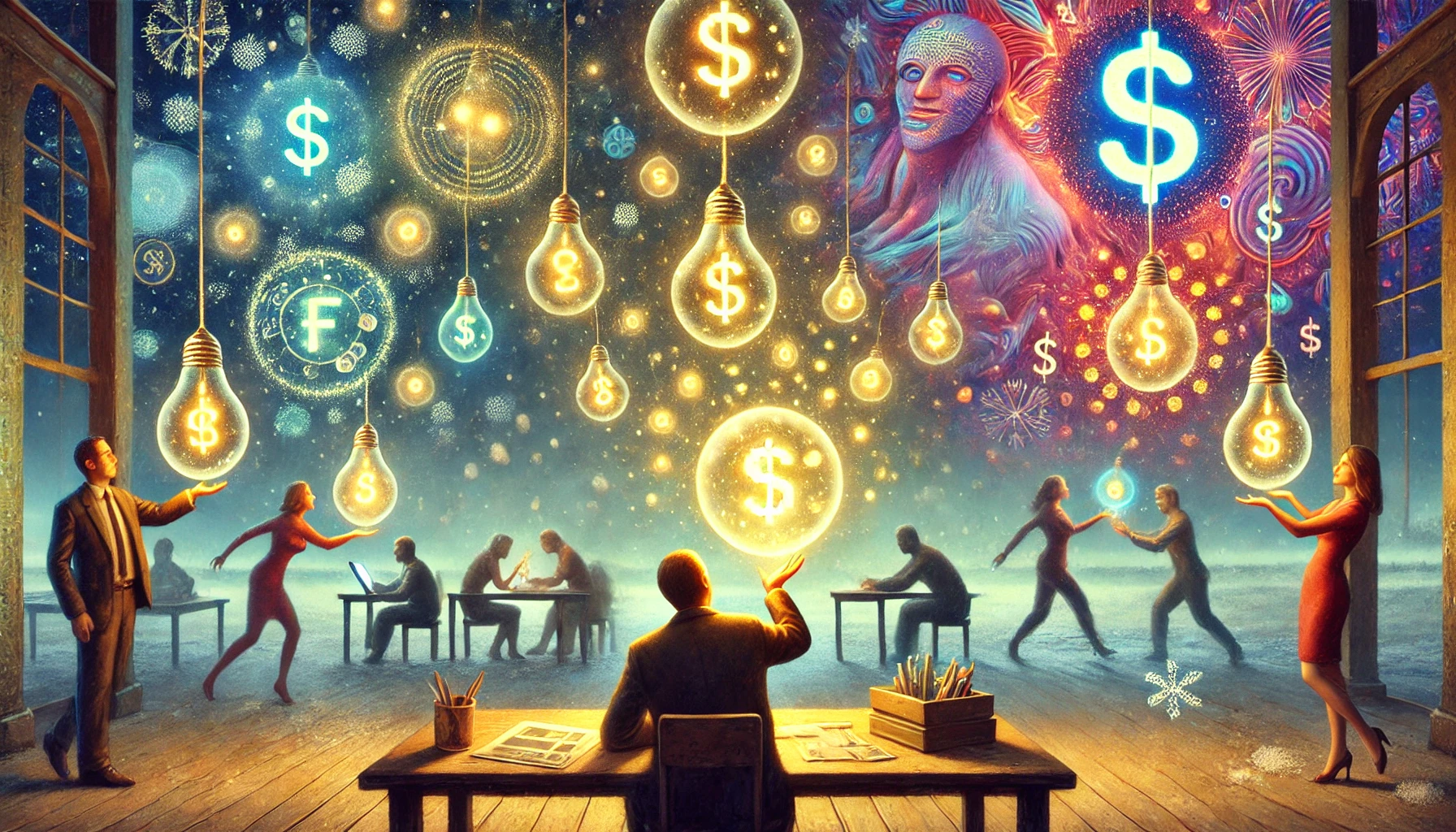



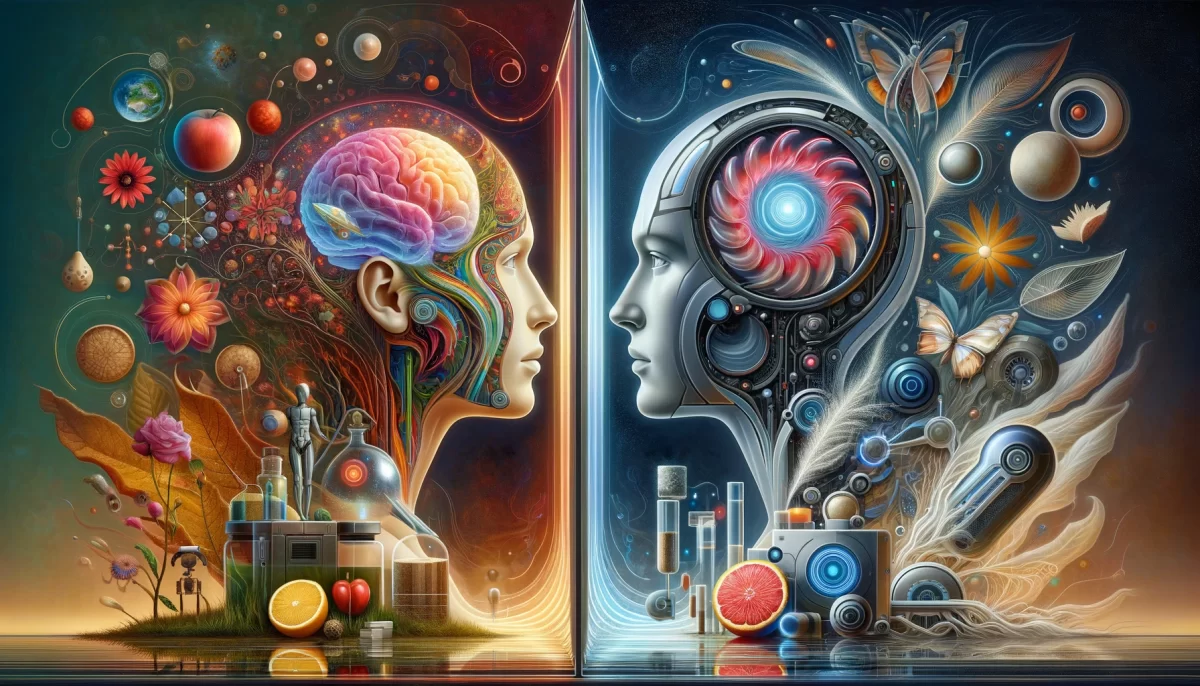


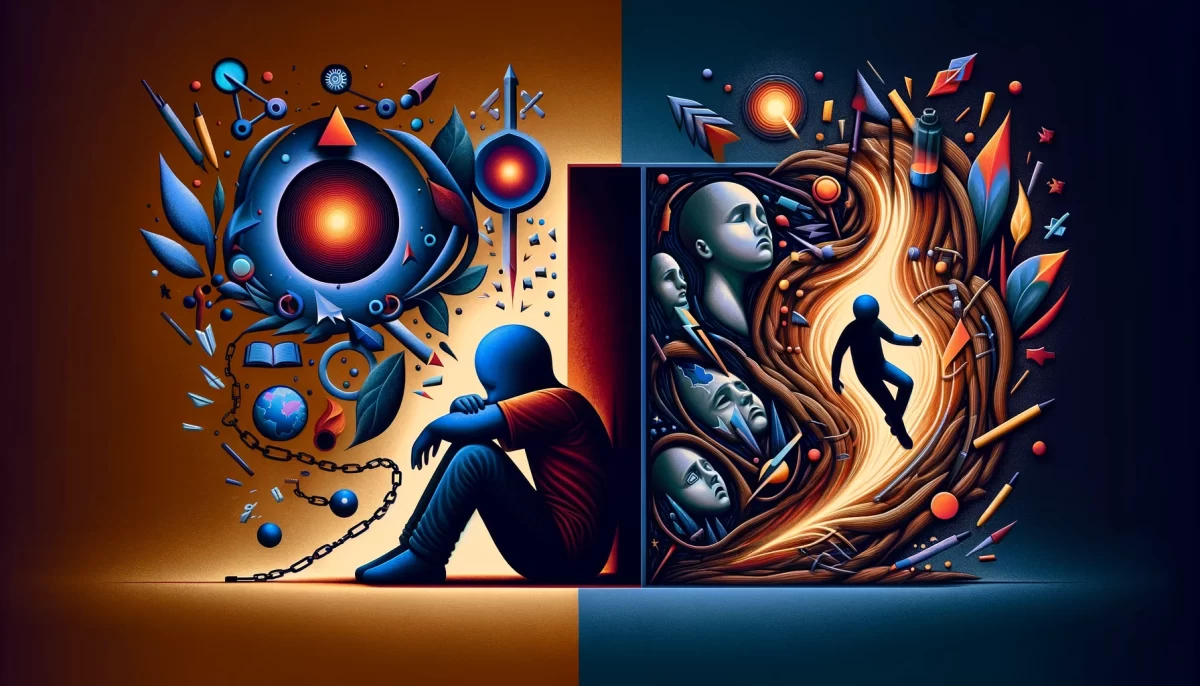

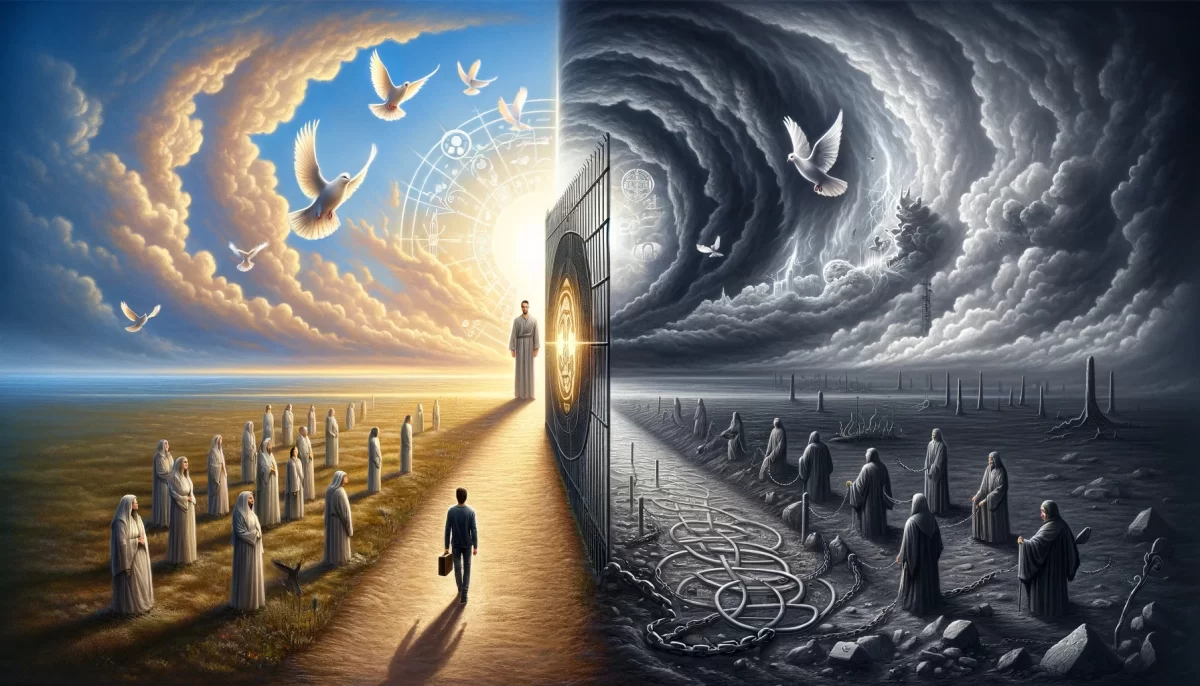



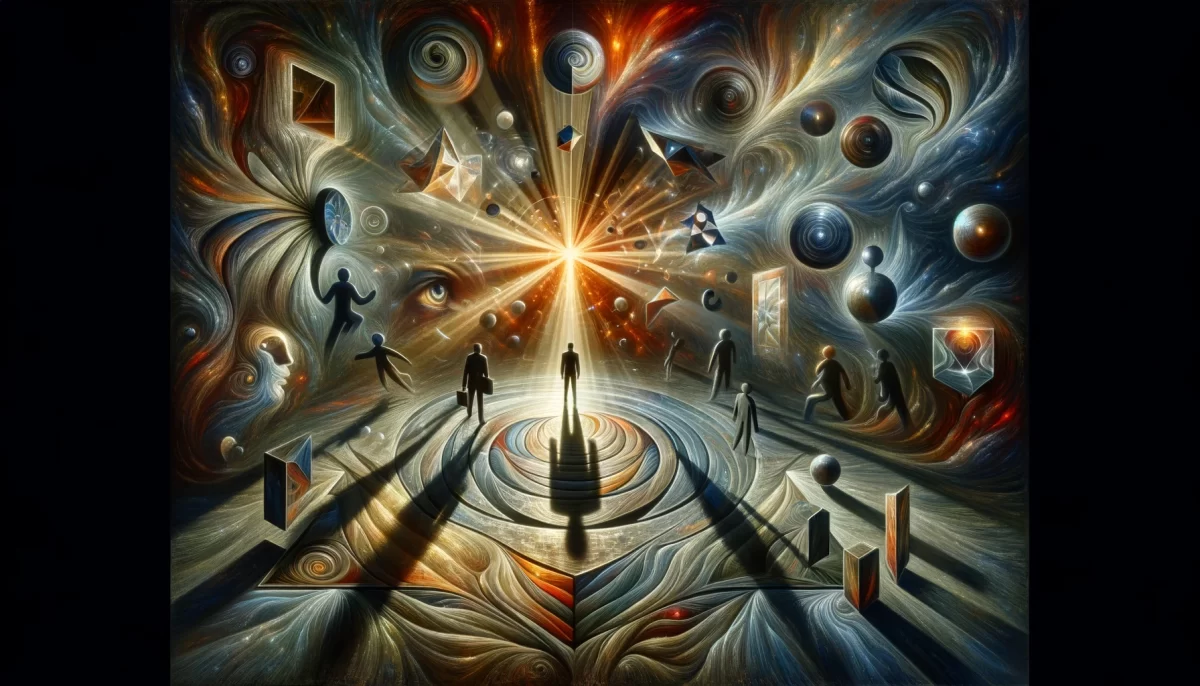






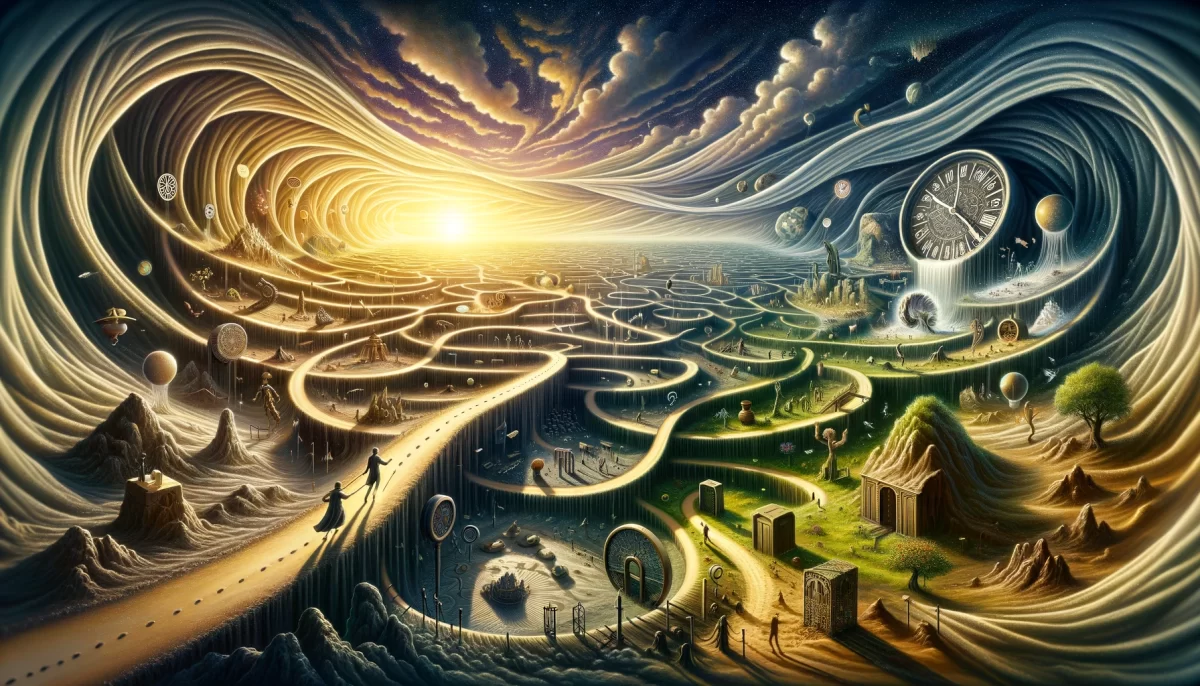



Leave a Reply